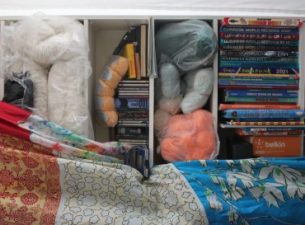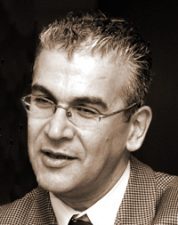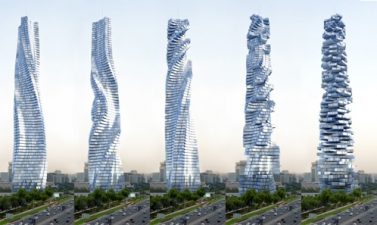
Another major fire in the Middle East: this time in a traditional market, souq.
Firefighters battled a blaze that erupted last week in Manama, Bahrain’s capital city, destroying hundreds of shops in the popular Isla Town Market. Over 500 stalls and shops were destroyed in the five hours it took to bring the blaze under control.
Prime Minister Prince Khalifa bin Salman Al Khalifa ordered an immediate investigation into the fire which gutted the traditional marketplace, or souq. He also kicked off meetings with shop owners to assess damages to merchandise and equipment. Traders will be allowed to salvage goods from the wreckage once safe re-entry is permitted by Civil Defense and the Criminal Investigations Department.
He commended the firemen and emergency services for controlling the situation without injury or loss of life: a miraculous feat given packed market crowds.
The Central Municipal Council agreed to relocate hundreds of displaced stall owners to a temporary market site behind nearby Ramez Trading Center. The Municipalities and Urban Planning Affairs Ministry will also inspect all of Bahrain’s traditional markets to confirm they comply with safety regulations.”
Losses are estimated in the hundreds of thousands of dollars.
The fire broke out at an electronics shop around 5:00 PM and quickly spread to the rest of the market; traders fled with whatever they could carry.
Approximately 120 firemen from all of Bahrain’s fire stations, including those on leave and off-duty, were called to the scene to bring the fire under control. Over 30 fire trucks were at the scene.
A senior Civil Defense officer, who declined to be named, described the fire as one of the most difficult they’d ever encountered. They arrived at the scene almost immediately but the fire spread quickly because of the inflammable materials in the tightly arranged stalls and shops. There were mattresses, curtains, fabrics, clothing and soft furniture. Flames were further fueled by combustible materials like paint thinner, furniture polish and kerosene, and butane tanks stored by individual shopkeepers for cooking, heating, and trade use.
The exact cause of the blaze remains unknown, and there have been no reports of looting.
Central Governorate Director General Mohammed Ali Hassan said victims would be compensated.
None of these high-risk businesses were insured, which is typical for traders in souks across the country: close proximity of booths and typically poor grade of construction materials are part of the reason.
Solidarity General Takaful underwriter Ali Mohammad Hazeem said, “This souk isn’t the only one we won’t insure, also the other souks in Bahrain like the Hamad Town souk and the narrow streets in Manama Souk where fire trucks can’t reach. The area in Harraq Souk selling the abayas (traditional Islamic women’s wear) are not insured because they’re so flammable. We don’t insure these shops because they’re too close together and there’s no security.”
Hazeem added if all stall owners in the Isa Town souk had been insured, their claims might have bankrupted the insurer.
Rebuilding is an economic and cultural necessity.
Locals shop the souk because of fair prices and availability of essential products. The markets offer basic services such as tailoring, butchering, baking and shoe repair. Travelers to the Middle East are charmed by traditional market places, drawn in by the exotic goods with their wild panoply of color, texture, tastes and scent.
Although many shops in traditional markets are generations old, they afford newcomers an opportunity to set up business with minimal investment. This micro commerce supports large local communities. But with globalization, and the emergence of the internet, the souk is rapidly becoming an endangered species. Malls lure shoppers to air conditioned markets where you can park your car and use credit.
Some Mid East cities are developing artificial city centers to specifically refocus commerce away from antiquated areas. There’s Solidere in Beirut, a modern economic and cultural district spreading over 472 acres of land, one-third on reclaimed land. Abdali is self-billed as Amman’s “new downtown”, promoting the Jordanian capital as a regional business and tourism hub, with modern residential, leisure and corporate facilities. Costing more than $5 billion, the project is in construction, although an anticipated 2012 ribbon cutting is much delayed. Despite marked differences between modern commercial centers and traditional marketplaces, the competition is real.
Souk revenue, critical to local communities, can be easily choked. A $53 million renovation of the Isa Town souk was planned to start last year. The project was scrapped when the investor backed out, citing the global financial crisis.
The Premier has directed an immediate rebuild using the latest security and safety upgrades. “What matters most is that traders return to their shops and stalls quickly so as to be able to earn their livelihood,” he told Gulf Daily News.
Image of Arab souq from Shutterstock




Everything about this report is wrong. Spelling mistakes, grammar mistakes…..